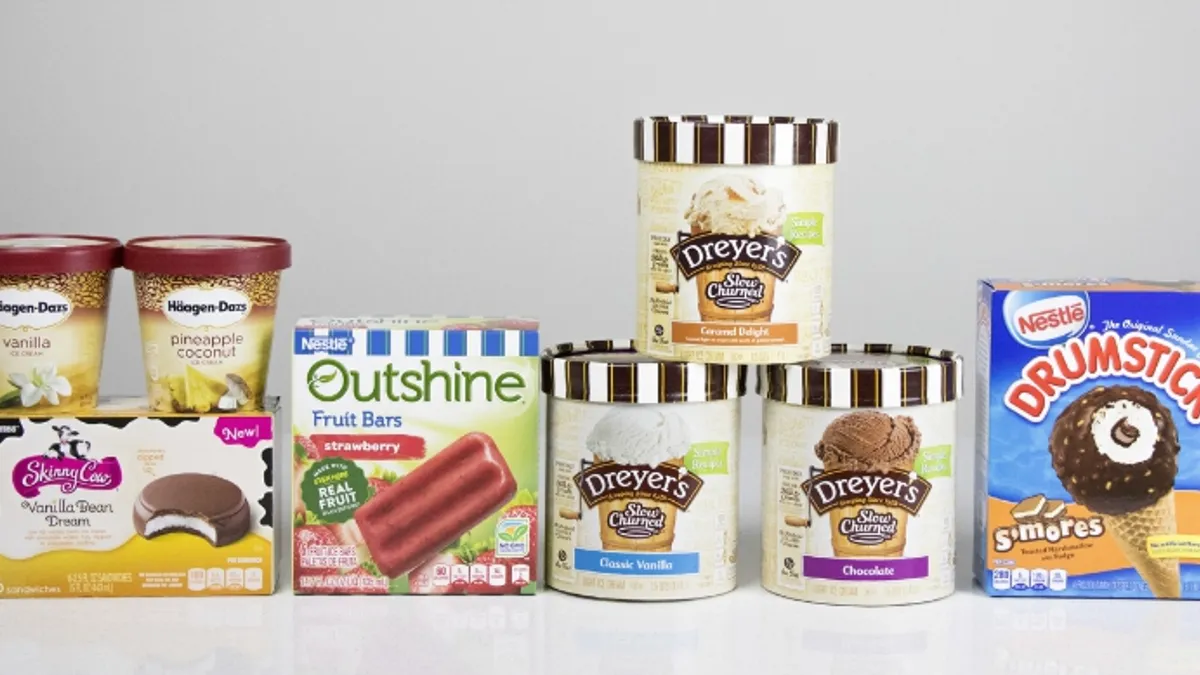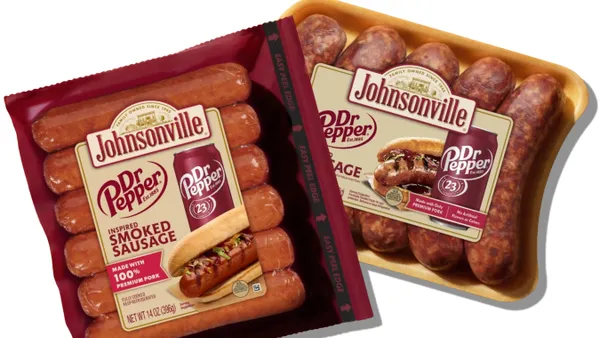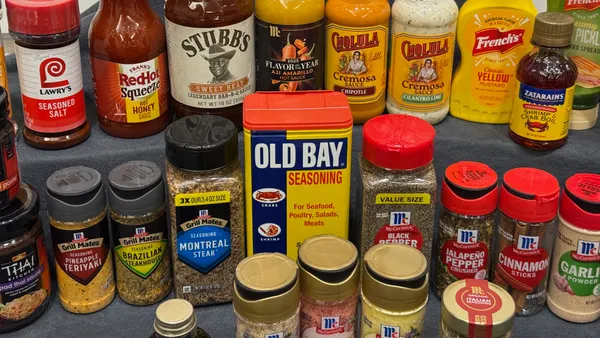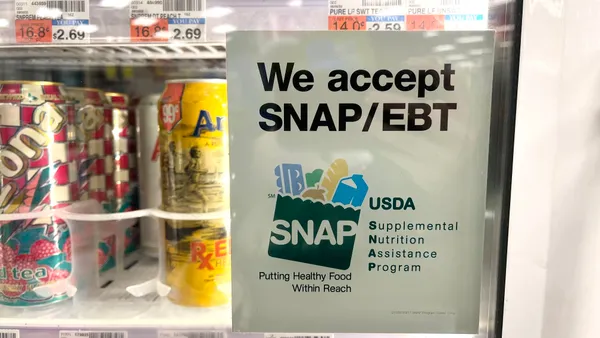Dive Brief:
- A recent independent survey of Nestlé investors found there is restlessness about the Swiss CPG giant's direction beyond activist investor Daniel Loeb and his Third Point hedge fund, according to The Wall Street Journal. Third Point revealed a $3.5-billion stake in Nestlé last year, making it the company's sixth-largest shareholder, and Loeb has been aggressive in pressing for changes he wants Nestlé to make.
- Paris-based research firm Exane BNP Paribas said its survey — which was not commissioned by Nestlé or Third Point — indicated some investors might support Loeb and Third Point if they pushed for further changes in the company's operations.
- The survey asked about support for Nestlé Chairman Paul Bulcke, who assumed the position in 2017 after serving as CEO for eight years, and 65% said they would vote against his reelection. It also questioned investors about whether they would support Third Point's adviser on Nestlé, Jan Bennink, for a board position, and 75% said yes. Other questions asked whether CEO Mark Schneider has enough freedom to operate, whether the pace of company change is too slow and whether Nestlé should be more active in disposing of company assets.
Dive Insight:
Results of this survey suggest many Nestlé shareholders agree with Daniel Loeb and Third Point when it comes to the company's direction and pace for change. When asked about the speed of Nestlé's change program, 63% of respondents said they thought the pace was too slow, indicating opposition against Nestlé's chairman continues to grow.
Ever since Third Point disclosed its stake in the company, Loeb has called for change. He asked Nestlé to divest its approximately 23% share of French cosmetics firm L'Oréal, which, according to Bloomberg, is worth $30.4 billion. This survey shows that investors are on board with his opinion since 70% said the company should specifically divest its share of L'Oréal. When asked whether investors thought Nestlé should be more active on the disposal front, 80% said yes.
But these survey results might not be a fair representation of sentiment about Nestlé's leadership and direction. There were only 61 respondents, and 67% indicated they were Nestlé shareholders when they took the survey, The Wall Street Journal reported. The company has 160,000 registered investors.
Nevertheless, they point to lingering dissatisfaction about how the company is conducting itself beyond just one activist investor. The survey also found that 41 of the 61 respondents favor Nestlé selling its U.S. frozen-foods business, 32 want to see the company's U.S. ice cream brands sold off and 28 would like to see Nestlé's European confectionery unit go away.
Management of the Swiss company hasn't ignored pressure for change. Nestlé sold its U.S. confectionery business to Italy's Ferrero Group for $2.8 billion at the beginning of this year and its Gerber life insurance business to Western & Southern Financial Group for $1.55 billion just last month. And the board recently decided to explore strategic options for its skin health unit, including the Cetaphil and Proactiv brands.
Nestlé also paid $7.15 billion this spring for the right to sell Starbucks coffee and drinks in retail outlets around the world. Last year, the company bought a majority stake in Blue Bottle Coffee and purchased Chameleon Cold-Brew. Those actions further solidified the company's coffee portfolio, which already included Taster's Choice, Nescafe and Nespresso. More recently, Nestlé bought Sweet Earth frozen foods and a majority stake in Terrafertil, a Latin American company.
It's unclear what direction Nestlé will take next, but the company's most recent earnings report may buy some time from disgruntled shareholders. Organic sales were up 2.9% during the third quarter — thanks in part to its North America pet care business, Coffee-Mate creamers, ice cream and coffee — and total sales for the first nine months increased 2% to $66.9 billion.
While the company hasn't enjoyed the 5% to 6% organic sales CEO Mark Schneider had earlier set as a target and then abandoned in 2017 after not meeting it for four straight years, he said this latest growth was "supported by disciplined execution and faster innovation." The Wall Street Journal noted Nestlé has projected reaching mid-single-digit organic growth by 2020, but that only 37% of survey respondents thought this was likely.
Meanwhile, the company has started raising prices to cover higher commodity and freight costs in response to inflation in some markets. Third-quarter sales reflected about 0.6% price hikes in the Americas, according to the most recent earnings report. Price hikes are not a step CPG companies take lightly in today's competitive environment, but if consumers don't balk too much, they could help Nestlé boost its profit picture and help mollify investors.
Nestlé could also do as Loeb has suggested and split the company into three divisions: beverages, nutrition and groceries. That could make it easier to focus on core strengths without the distraction of worrying about other units. However, reorganization of such a huge company would take time, effort and money, and it would be hard to make big changes while it's underway. Nestlé may need more time to get where it needs to go, but that will depend on whether restless shareholders are willing to wait.













